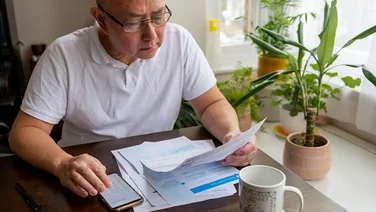We receive a small fee from trusted installers when you request a quote through our site. This helps us keep our content independent, well-researched and up to date – Learn more
- Having a poor environmental track record is one of the worst things a brand can do.
- More than a quarter of Brits dislike Black Friday so much they would consider boycotting it.
- The best thing to do is to make sure you buy from brands that guarantee sustainability.

Black Friday is a season of sales for shoppers across the globe, with November becoming the month of rampant consumerism. However with all this buying, how can we protect the planet?
Days like Black Friday create a lot of waste because of the huge number of products bought. There are also carbon emissions in the supply chain, i.e., how the products are sent to your home.
Because of the affect it has on the planet, more and more people are boycotting Black Friday.
Recent research from Keep Britain Tidy suggests that 31% of Brits hate Black Friday and another 27%, or 14.5 million people across the UK would join a boycott, with the hashtag #BoycottBlackFriday currently circulating on social media.
On top of that, over half of UK adults agree that it contributes to landfill waste and creates excess carbon emissions.
One of the most common things we get is around government grants for solar panels. To learn more, read our dedicated guide.
Whether you’re a retailer or a consumer, or simply want to leave the world better than you found it, here’s how you can have a more sustainable Black Friday.

Get free solar panel quotes
Answer a few quick questions, and our trusted installers will send you bespoke solar panel quotes – for free.
Prioritise ethical and sustainable brands

According to comparison site Uswitch one of the worst things a brand can have from a consumer perspective is a poor environmental track record, with 84% of respondents saying this was the thing most likely to stop them buying something, with ‘unsustainable packaging’ second with 83%.
If you’re keeping the planet in mind this Black Friday, we suggest scouting out businesses that focus on responsibly-sourced products and ethical initiatives.
Focusing on these principles will help you make a more sustainable choice, so if you’re feeling the urge to purchase something on Black Friday, you’re keeping your environmental impact to a minimum.
To know whether your chosen brand is environmentally friendly, check out how they source the products. For example, do they replant trees for paper products? Also check out how the products are made; if they use locally sourced, sustainable materials to mitigate environmental concerns.
As well as this, consider where the products are made and how they’re delivered to you. Some companies will use local factories to lessen the carbon footprint of their products, or will deliver goods in electric vehicles (EVs). In 2020 in the UK alone, CO2 emissions related to the home delivery of Black Friday purchases reached an estimated 429,000 metric tons.
Other things to watch out for is greenwashing: are companies only sustainable because they buy carbon credits? The more transparent a company is about their production process, the better.
Choose good quality items

According to research, 74% of customers cite product quality as the main reason they stay loyal to a brand. Purchasing better quality products means they last longer, prolonging or in some cases removing the need to buy a replacement altogether. This means that you get to save both the environment and your money this Black Friday.
Better quality products can be more expensive, so buying second hand is another great way to take care of the environment. Local charity shops are a great place to buy as you’re simultaneously giving old clothes a new lease of life and giving money towards a charitable cause.
On the flip side, if you’re looking to get rid of some items with the intention of purchasing new ones this Black Friday, consider donating your old clothes to charities rather than just throwing them away. According to charity shop Oxfam, less than 1% of textiles and clothes are actually recycled into new textiles and clothes.

Get £7500 towards your heat pump installation through a trusted installer
An MCS-certified heat pump installer can apply for the Boiler Upgrade Scheme on your behalf, get a quote from one now
Pay attention to reviews

A lot of consumers fall victim to the allure of a shiny new deal on Black Friday and end up impulse buying things they don’t need. In fact, during Black Friday Brits spend about £3bn, but the truth is that it’s very easy to buy something that actually isn’t great value. That’s because retailers hike up prices in the months before to make the product seem cheaper than it really should be.
Our best suggestion is to decide what you need before you shop so you don’t fall victim to impulse buying and end up buying something you don’t need.
A new report, titled ‘Building a Circular Economy,’ suggests that up to 80% of items and the plastic packaging they’re wrapped in end up in landfill, incineration, or low quality recycling after an extremely short lifespan following Black Friday.
This yearly cycle of impulse buying and throwing away can lead to significant waste and has a substantial environmental cost in terms of product emissions, delivery and disposal.
Allison Ogden-Newton OBE, Keep Britain Tidy’s Chief Executive, said: “The waste our nation generates is a huge issue all year round, but is exacerbated at this time of year, as seemingly large discounts persuade people to buy items they don’t need and can’t always afford.
“The public are awakening to the idea that this level of consumerism is environmentally and economically unsustainable.”
If you want to take advantage of the Black Friday deals but don’t know where to begin, The Eco Experts’ sister site Expert Reviews are here to help pick out the best deals for you. This means you won’t be overwhelmed by the amount of deals during Black Friday and can be certain that the deal you’re interested in is worth your time and money.
Summary
To enjoy a Black Friday that’s beneficial for you and for the environment, you should approach it with the intent to only buy what you need, and make sure those purchases are from sustainable sources. Our top tips include:
- Purchasing better quality products so you don’t need to replace them as frequently.
- Use review sites to make it easier to sift through the Black Friday deals, finding what you want as quickly and easily as possible.
- Write a list of everything you need before shopping so you’re not tempted to buy something you don’t need.







